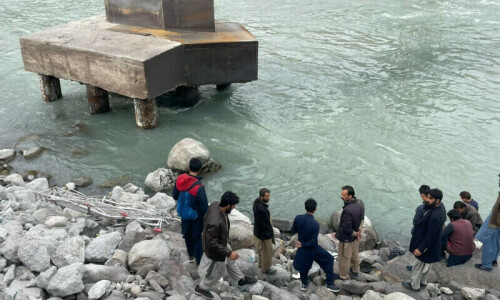GENEVA, April 22: Climate change is aggravating the global food crisis and many poor countries could be facing the start of major hunger disasters, former United Nations Secretary-General Kofi Annan said on Tuesday.
Agricultural production worldwide must be revamped over time but poor farmers in Africa and elsewhere need help now to meet the spiralling costs of fertiliser, which has prevented them from planting more crops, he said.
Severe drought in Australia, one of the world’s major bread baskets, has caused crop failures that have contributed to soaring food prices and jeopardised the world’s ability to feed millions of hungry people, Annan said.
“We might already be seeing the beginning of major hunger disasters,” he told a news briefing in Geneva, citing food riots in Haiti, the Philippines and Egypt in recent weeks.
The crisis was a real challenge for people living on $1 day and their governments: “The poor are bearing the brunt and they contributed the least to climate change.
The polluter must pay.”“Climate change is an all-encompassing threat a threat to our health, security, political stability and social cohesion,” Annan added.
Projections by the UN climate panel indicate emissions by rich nations will have to fall by 25 to 40 per cent below 1990 levels by 2020 to avert the worst effects of more droughts, heatwaves, floods and rising seas.Annan is chairman of the Alliance for a Green Revolution in Africa, an African-led partnership working to boost farm productivity and incomes for small-scale farmers.
He is also president of the Geneva-based Global Humanitarian Forum which will hold its first annual meeting June 24-25 on the theme of “The Human Face of Climate Change”.
On biofuels, Annan said their long-term viability had not been established, and said they were currently having a negative impact on food supply.
Supporters say biofuels, produced mainly from grains, vegetable oils and sugar crops, can help reduce dependence on fossil fuels and cut emissions of the greenhouse gases believed to contribute to global warming.
Critics say increased production of crops for ethanol and biodiesel, derived from oil seeds, competes with land for food.—Reuters











































Dear visitor, the comments section is undergoing an overhaul and will return soon.